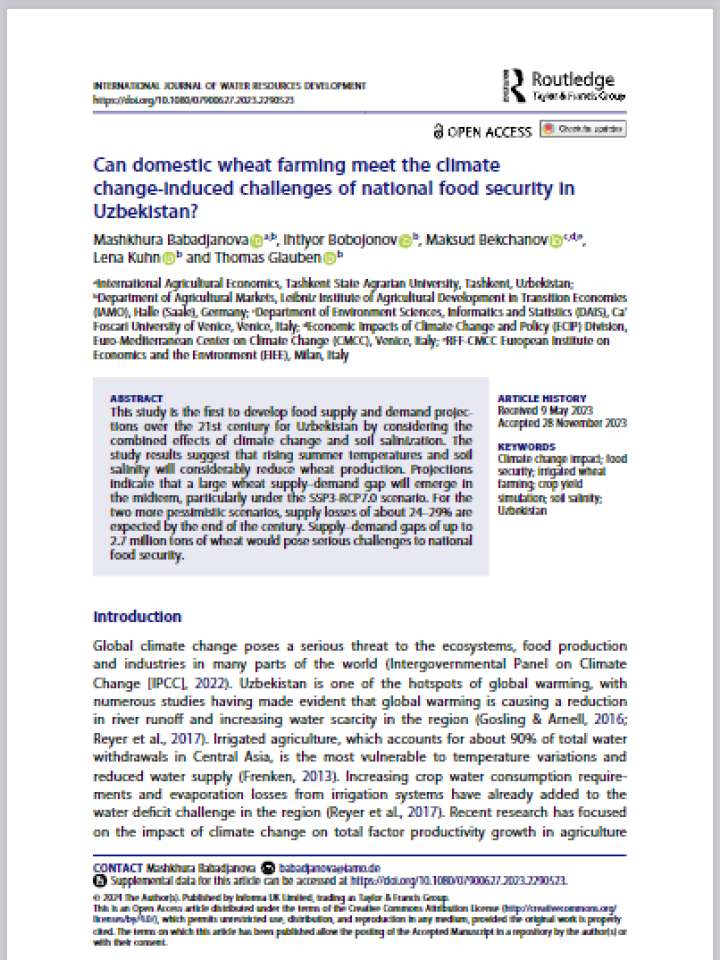Can domestic wheat farming meet the climate change-induced challenges of national food security in Uzbekistan?
This study is one of the few approaches to investigate the combined ex-post effects of climate change and soil salinity on wheat yields, as well as future domestic food security in terms of wheat, which is a critical issue for many regions worldwide.
The results indicate that Uzbekistan has heavily relied on irrigation water use and is vulnerable to climate change, particularly considering already high levels of soil salinization. Furthermore, the population growth and increasing demand for food in the future are expected to result in a considerable wheat supply–demand gap, as shown under the SSP3-RCP4.5 scenario. To avoid this gap, structural adjustments and dedicated policy approaches are essential for achieving sustainability.
Explore further
